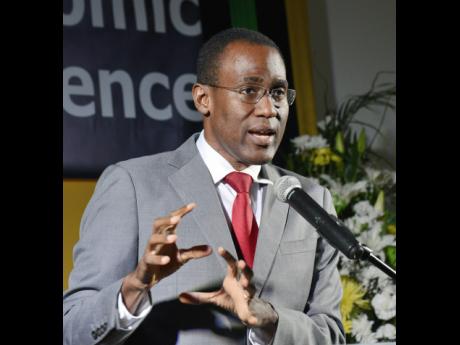National Financial Inclusion Strategy delay
Resource constraints within Government and legislative delays have hampered the implementation of the National Financial Inclusion Strategy (NFIS).
The Government launched the NFIS in March 2017 in a push to design policies to allow all Jamaicans and businesses to participate in the financial sector.
"The major project risk that we face in the public sector is the question of resource deployment. Many of us here are carrying multiple projects, and, as such, it's sometimes challenging for you to place all your focus or your attention on financial inclusion," said Melanie Williams, NFIS coordinator, as she gave a status report at a forum held at the Terra Nova All-Suite Hotel yesterday.
She added that there were more than 15 ministries, departments, and agencies involved in the implementation of the NFIS, but there are challenges, particularly related to consumer protection and agriculture.
Williams added, "A major concern, of course, continues to be the delay in having the legislation implemented for the Micro Credit Bill, as well as for the credit unions, and we hope to have the changes done to the Proceeds of Crime Act to facilitate better recognition of electronic retail payment products."
The Micro Credit Bill will help to regulate micro-lending institutions and provide a stronger framework for micro, small- and medium-sized enterprises to participate in government contracts. Financial access, responsible finance, supporting infrastructure, financing for growth, and resilience are the guideposts used to measure financial inclusion.
2017 ANNUAL REPORT
"Having completed our review, there has been improvement in five impact indicators from their baseline figures," the 2017 annual report stated. For instance, the number of deposit accounts with commercial banks per 10,000 adults moved from 1,078 in 2016 to 1,396 in 2017, with 1,500 as the 2020 target.
Dr Nigel Clarke, chairman of the NFIS, said that he has given instructions that an equity ownership should be included in the measurement of financial inclusion.
He asserted: "We want a society where the ownership base is broadened, where more and more Jamaicans own shares in companies and can participate in the upside that accompanies the fiscal and monetary reforms that we have embarked upon."

